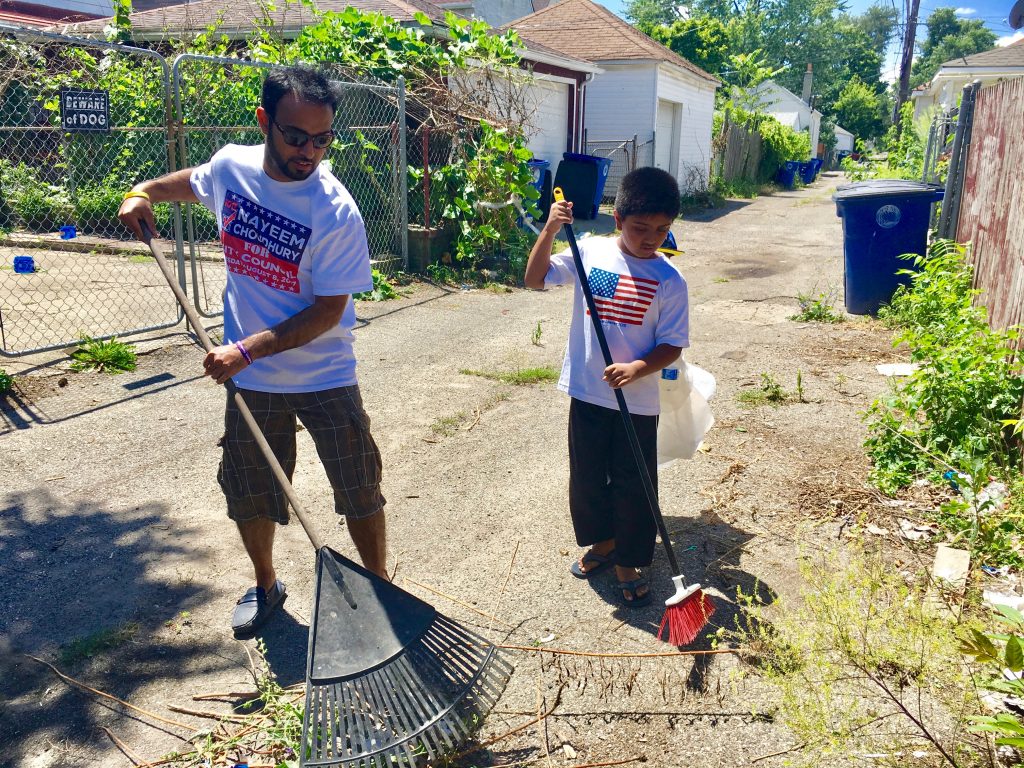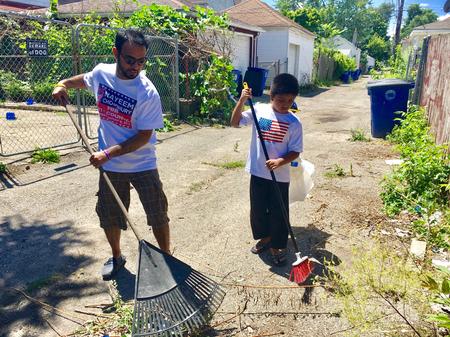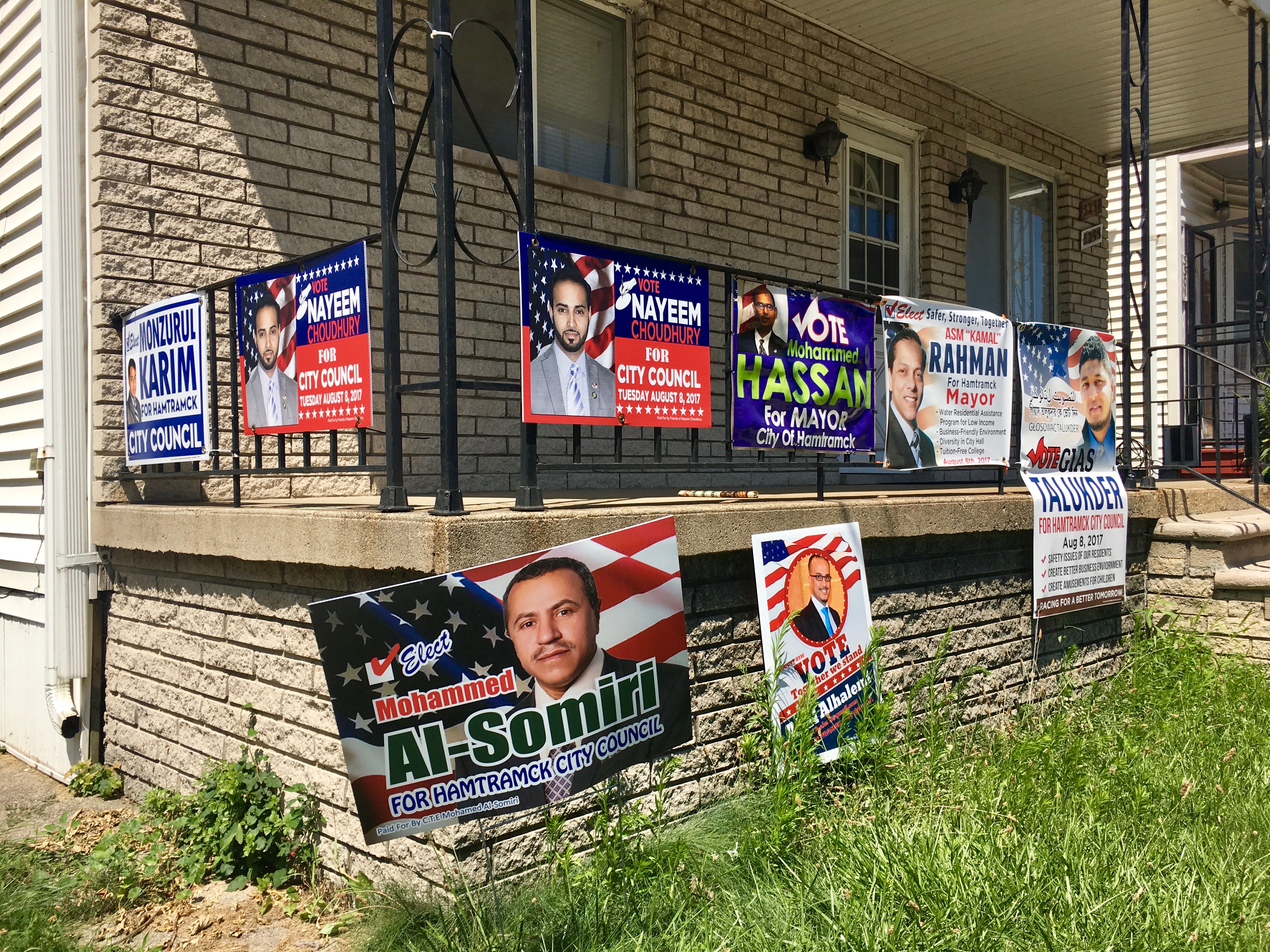Newcomers Challenge the Electoral Status Quo in Hamtramck
Changing demographics and recent political tension on City Council make for a tight race come November.


“This city consists of so many ethnicities, so you’re going to have some positive and negative influence.”Nayeem Choudhury, Hamtramck City Council Candidate

Following Tuesday’s primary election, the 10 candidates for Hamtramck City Council have been narrowed down to six: Andrea Karpinski, Nayeem Choudhury, Ian Perrotta, Monzurul Karim, Mohammed Al-Somiri, Fadel Al-Marsoumi.
The mayoral race has also tightened as incumbent Mayor Karen Majewski faces City Council Member Mohammed Hassan, who narrowly beat out challenger and community organizer Asm “Kamal” Rahman.
With campaign signs in Arabic, Bengali, Polish and English, Hamtramck’s votes are still up for grabs.
Political In-Fighting and Public Outbursts Loom Over Hamtramck City Council
The election takes place in a charged political atmosphere, as divisions between Hamtramck’s city officials have come to a head. In February, the Hamtramck City Council took a vote that would have allowed officials to begin negotiating a contract extension for City Manager Katrina Powell. But the vote became a source of tension between municipal officials. Council Members Saad Almasmari, Abu Musa, Mohammed Hassan and Anam Miah voted against the resolution, a majority decision that rejected Powell’s employment by the city. Council Members Ian Perrotta, Andrea Karpinski and Mayor Karen Majewski voted in favor of the resolution.
Powell was hired by former Hamtramck Emergency Manager Cathy Square in 2014, shortly before the state declared the financial emergency over and appointed a Receivership Transition Advisory Board. Since becoming city manager, Powell has been credited with maintaining a $2 million budget surplus two years in a row while maintaining services and going after delinquent taxes and water bills. “We have major infrastructure projects going on here that should have been done 50 years ago,” Majewski says. “She has done the things that a city manager is supposed to do: get us better services at less costs. She has done that consistently in the two years she’s been here.”
But some of the council members who voted against renewing Powell’s contract say the city manager does not play well with others, including members of Hamtramck’s municipal government. “She was not communicating with our council members about making decisions,” says Almasmari. “She was hiring and firing people without telling us. It was on the emergency manager’s order that she has the authority to do such a thing, but she has to come to us for our opinions. She was making major decisions in the city without going back to us.”
Disagreements on the issue have become a recurring point of tension amongst council members and often escalated to shouting matches between council members, such as in this exchange on May 12:
Although the city manager position has since been filled by an interim appointee, the political divide is still significant for a couple reasons. While Majewski, Karpinski and Perrotta all voted against ending the city manager contract, the three are also up for re-election, and, to some, they represent the last vestiges of Hamtramck’s traditional base of political power.
Shifting Demographics Could Change Tide in Electoral Turn Out
Hamtramck is host to a diverse international community, but political office has historically belonged to Polish-Americans. That community is shrinking. “I was asked in an interview a few years ago by a young woman from the Muslim Observer about, ‘When did the Poles leave Hamtramck?’” says Thaddeus Radzilowski, president of the Piast Institute and an immigration historian. “I said, ‘They didn’t. They died here.’”
“Every mayor of the city since it was founded, now we’re going almost on to a hundred years, was Polish.”
Thaddeus Radzilowski, president of the Piast Institute and immigration historian.
According to the U.S. Census Bureau, of the 21,752 people that live in Hamtramck, more than 43 percent are foreign-born. And as the Polish-American population has dipped, Hamtramck’s Bengali and Yemeni-American communities have thrived. Members of the two groups hold onto the majority of council seats, earning Hamtramck the title of the first majority Muslim city council in the U.S.
While Yemenis and Bengalis comprise the bulk of the city’s population today, that fact might not have that big of an impact on this election: many of them cannot vote. “Only about 44 percent are citizens,” Radzilowski says. “So when you’re talking about having 24 percent of the population being Yemeni and 24 percent of the population Bengali, you’re talking about a population that is primarily still foreign-born.”
Still, if the three incumbents fail to regain their seats, there’s a chance Hamtramck could become the first U.S. city governed entirely by Muslim-Americans.
[Elements of this story were first published in the Yemeni-American News]
